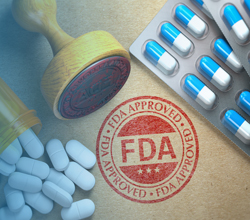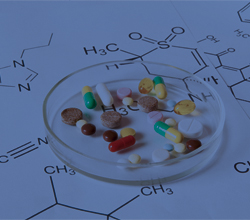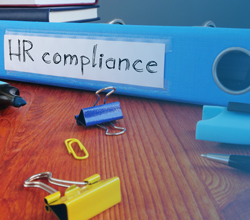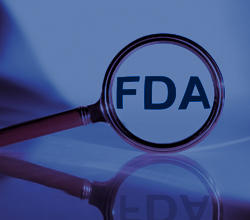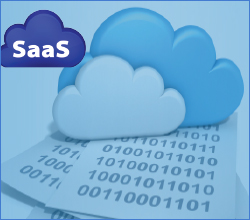
The Importance of Packaging and Labeling in Pharmaceutical Product Development
 Michael Esposito
Michael Esposito
 60 Mins
60 Mins
Product Id: 706063
Packaging and labeling is often underestimated in the planning phases of pharmaceutical product development. This leads to unnecessary increases in cycle time, costly errors, and delays in product availability, or product recalls due to noncompliance. This webinar will help you succeed in pharmaceutical product launch by exploring its importance right from the conception of a product, its realization and distribution.

Data Integrity and Privacy: Compliance with 21 CFR Part 11, SaaS/Cloud, EU GDPR
 David Nettleton
David Nettleton
 90 Mins
90 Mins
Product Id: 701687
This 21 CFR Part 11 compliance training will guide you through the requirements of Part 11 and will also explain its 3 primary areas: SOPs, product features and validation (10 step risk based approach).

You have a BI Positive or Product Sterility Positive - Now What?
 Gerry O Dell
Gerry O Dell
 75 Mins
75 Mins
Product Id: 703288
This webinar explains what actions should be taken following an unexpected positive result in a sterility test on a biological indicator (BI) during performance qualification or routine testing. It also addresses the actions to take when a test of sterility demonstrates unexpected growth during validation or routine dose audits. The various items that should be investigated to determine the root cause and the follow up to the investigation will be covered.

Social Media Compliance for Fair Lending: What to post and what not to
 Justin Muscolino
Justin Muscolino
 60 Min
60 Min
Product Id: 706987
Ensure compliance in your social media marketing efforts with our "Social Media Compliance for Fair Lending" training. Learn what content is permissible and what's not to avoid potential regulatory issues. This course covers guidelines for posting on various social media platforms while adhering to fair lending laws. Gain insights into creating compliant content that promotes transparency and fairness in your lending practices. Equip your team with the knowledge needed to navigate the complexities of social media compliance, mitigate risks, and maintain regulatory adherence in your digital marketing strategies.

Human Error Investigations, Root Cause Determination and CAPA Effectiveness
 Ginette M Collazo
Ginette M Collazo
 90 Mins
90 Mins
Product Id: 704314
This training program will offer attendees an understanding of human error, its factors and causes. The program will also identify the regulatory and business importance of human error prevention and define the process to manage human error deviations.

Current Trends in FDA Inspections
 Michael Ferrante
Michael Ferrante
 90 Mins
90 Mins
Product Id: 703485
This webinar will focus on the current trends in FDA inspections and guidelines that can be implemented to ensure compliance with the latest quality and regulatory requirements. Attendees will learn how to prepare for an FDA inspection to avoid Warning Letters.

Process Simulation Testing for Aseptically Filled Products; An In-depth Examination of the Latest Product Sterility Assurance Levels Prescribed by GMPs
 Barry A Friedman
Barry A Friedman
 90 Mins
90 Mins
Product Id: 706882
The objective of this live, interactive training webinar is to explore the role of media fills in assuring that manufactured product will retain the sterility assurance level prescribed by GMPs. It will review the issues regarding preparing media and setting up the “filtration train”, environmental monitoring, interruptions that may occur during the operation of the Clean Room (planned and unplanned) and the cleaning of the room and its equipment. Equipment used to monitor the equipment and personnel will also be reviewed along with gowning issues that periodically arise. The webinar will also discuss media failures and how to “work through” them. Because of the sensitivity and importance of media fills, this live, interactive training webinar is a MUST for anyone in your organization that is involved in aseptic filling in general and media fills, in particular.

FDA Guidance for Use of Social Media by Regulated Industries
 Carolyn Troiano
Carolyn Troiano
 90 Mins
90 Mins
Product Id: 707033
This webinar training will help you understand in detail the application of FDA’s draft guidance documents on the use of social media in presenting and promoting information about drug products and medical devices subject to FDA regulation. This is critical in order to develop the appropriate strategy, policies, and procedures to ensure compliance.

Supply Chain and Product Compliance Using RoHS, REACH, and Conflict Minerals
 Kelly Eisenhardt
Kelly Eisenhardt
 60 Mins
60 Mins
Product Id: 703871
This training program will offer an in-depth look at three important product regulations focused on materials compliance and ethical sourcing, along with the tools and policies needed to implement them.

Unauthorized Transactions – Reg E vs Nacha Operating Rules
 Donna K Olheiser
Donna K Olheiser
 90 Mins
90 Mins
Product Id: 706856
Unauthorized transactions come in many different forms, when returning using Reg E or the Nacha Operating Rules can be confusing. Discussion will include what, why and when while processing unauthorized returns. The trainer will define the limits of liability and who is liable for what amount while providing some real-life scenarios. Details on the error resolution process with Reg E for consumer notification to the financial institution, research time involved, and the timing of providing provisional credit; included will be guidelines on the “what if” there is no error, and providing notice to consumer, and any overdraft protection relating to that provisional credit being reversed. Included will be outlining the ACH return process, when using the ACH network is appropriate, and paperwork/forms needed. Recent Rules changes affecting Nacha compliance when sending unauthorized ACH Returns using Return Reason Codes R10 vs. R11 is included.

The New OSHA Recordkeeping and Reporting Requirements-300, 300A, 301
 Michael Aust
Michael Aust
 60 Mins
60 Mins
Product Id: 704465
This webinar training will discuss the recent updates in OSHA Recordkeeping and Reporting Requirements. Speaker will explain the major regulatory changes that went into effect January 1, 2015 Participants will gain valuable understanding of 300, 300A and 301 log, new reporting timeline requirements and exemptions.

Applied Time Series Analysis in Healthcare
 Elaine Eisenbeisz
Elaine Eisenbeisz
 4 Hrs
4 Hrs
Product Id: 706758
This 4-hour webinar will provide attendees with the theory and application of time series analysis. The main focus will be on auto regressive integrated moving average (ARIMA) techniques. Variations of the ARIMA and other models which operate under non-linear data, non-stationary data, seasonality, and trends will also be examined.

Onboarding in a GMP Environment: Best Practices for Foundational Employee Success
 Michael Esposito
Michael Esposito
 75 Mins
75 Mins
Product Id: 705475
Onboarding new employees in a pharmaceutical company, which is required by law to follow the regulations governing current Good Manufacturing Practices (cGMP), creates additional complexities besides the Human Resources element. As government regulatory agencies have expectations regarding the process of qualifying employees to perform their job duties, it is essential to become familiar with these expectations and the implications that they have for the company’s training plan. In addition, companies have been penalized for failure to follow established regulations, which can create issues that can impede production, damage a company’s reputation, or ultimately lead to recalling or discontinuing product. Still, the process is not straightforward, and questions inevitably arise regarding the application of the regulations. This course will address the issues that accompany onboarding new or transferred employees and enable you to navigate them successfully.

Ensuring Data Integrity and Minimizing Human Error: Practical Strategies and Tools for Success
 Ginette M Collazo
Ginette M Collazo
 90 Mins
90 Mins
Product Id: 707034
Data integrity is a critical component of compliance and operational success in regulated industries such as pharmaceuticals and medical devices. Ensuring that data remains accurate, complete, and consistent throughout its lifecycle is essential for maintaining trust and meeting regulatory expectations. However, human error poses a significant threat to data integrity, with mistakes in data entry, processing, and analysis leading to costly breaches and compliance risks.

Ethylene Oxide (EO) Sterilization Basics for R&D Engineers
 Gerry O Dell
Gerry O Dell
 90 Mins
90 Mins
Product Id: 701272
This Sterilization training will provide valuable information to companies that design products for terminal sterilization with ethylene oxide.

ICH Q7A GMPs for Active Pharmaceutical Ingredients Training Course
 Barry A Friedman
Barry A Friedman
 90 Mins
90 Mins
Product Id: 706881
This live, interactive training webinar will examine a variety of the issues surrounding raw materials to include what materials should be tested and to what extent during Phase 1, 2 and 3. It will cover testing requirements as part of “Laboratory Controls” during each Phase and what laboratory testing may be optional until the ingredient moves to its next Phase. It will determine what options exist — even within a Phase 2 or Phase 3 testing framework. It will discuss compendial vs. non-compendial testing and how to respond when no method is available. Within the past several years the FDA has also issued a significant number of Warning Letters pertaining to 21 CFR 211.84 which involve management of raw/in-coming materials and which correspond to various sections within ICH Q7A. Please plan to attend the upcoming 90-minute Compliance OnLine webinar to learn how to avoid receiving this common citation and maintaining compliance with ICH Q7A. Please plan to bring an interdisciplinary group to obtain the most from this webinar.

Storm Water Pollution Prevention Plans (SWPPP)
 Joe Keenan
Joe Keenan
 90 Mins
90 Mins
Product Id: 705510
This webinar will discuss the basics of what is required in a Storm Water Pollution Prevention Plan (SWPPP), how to develop and implement and formalized SWPPP and address site-specific questions and scenarios.

BSA Important Issues: new mandates, requirements, and recommendations
 Justin Muscolino
Justin Muscolino
 60 Min
60 Min
Product Id: 706975
The Bank Secrecy Act (BSA) is a US law that fights money laundering and other financial crimes. BSA requires businesses to keep records and file reports that are determined to have a high degree of usefulness in criminal, tax, and regulatory matters. Individuals and financial institutions who fail to comply with BSA requirements may face severe penalties and for more serious offenses, prison sentences.

The 6 Most Common Problems in FDA Software Validation and Verification
 David Nettleton
David Nettleton
 120 Mins
120 Mins
Product Id: 705582
This training on FDA software validation and verification will provide you the best practices necessary to ensure that all systems are validated in compliance with FDA regulations.

FDA Compliance for Regulated Systems Using COTS, Cloud & SaaS Solutions
 Carolyn Troiano
Carolyn Troiano
 90 Mins
90 Mins
Product Id: 707035
Advancements in technology have forced organizations to rethink business models. Once controlled and orderly, these organizations are now more chaotic and complex, serving patients and customers that are better informed and with higher expectations than ever before. Work practices and tools must change to meet these challenges.

